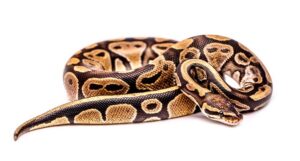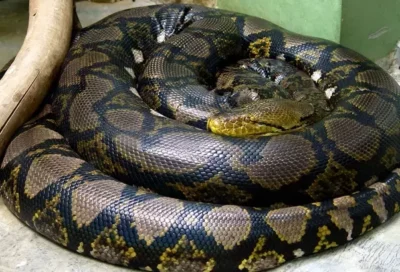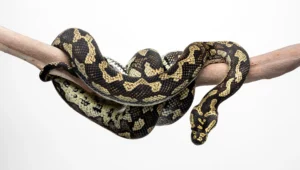Are carpet pythons venomous? This is a question that often pops up in discussions about these majestic reptiles. With their striking patterns and impressive size, carpet pythons are a popular choice among reptile enthusiasts.
No, carpet pythons are not venomous. They are constrictors, meaning they kill their prey by squeezing it until it suffocates, rather than using venom. While they can deliver a painful bite, especially when they’re feeling threatened, their saliva does not contain venom.
So, if you come across a carpet python in the wild or as a pet, you can rest assured that it’s not going to inject you with venom.
What are Carpet Pythons?

Carpet pythons are a group of nonvenomous snakes belonging to the genus Morelia, native to Australia, New Guinea, and Indonesia. They are called “carpet” pythons due to their beautifully patterned scales, which resemble intricate carpets.
There are several subspecies of carpet pythons, including the Coastal carpet python (Morelia spilota), Jungle carpet python (Morelia spilota cheynei), and Irian Jaya carpet python (Morelia spilota harrisoni), among others. They are popular among reptile enthusiasts due to their attractive appearance, manageable size, and generally docile nature.
Carpet pythons are constrictors, which means they kill their prey by coiling around them and squeezing until they suffocate. They primarily feed on small mammals, birds, and occasionally reptiles. In the wild, they inhabit a variety of habitats, including forests, woodlands, and even urban areas.


